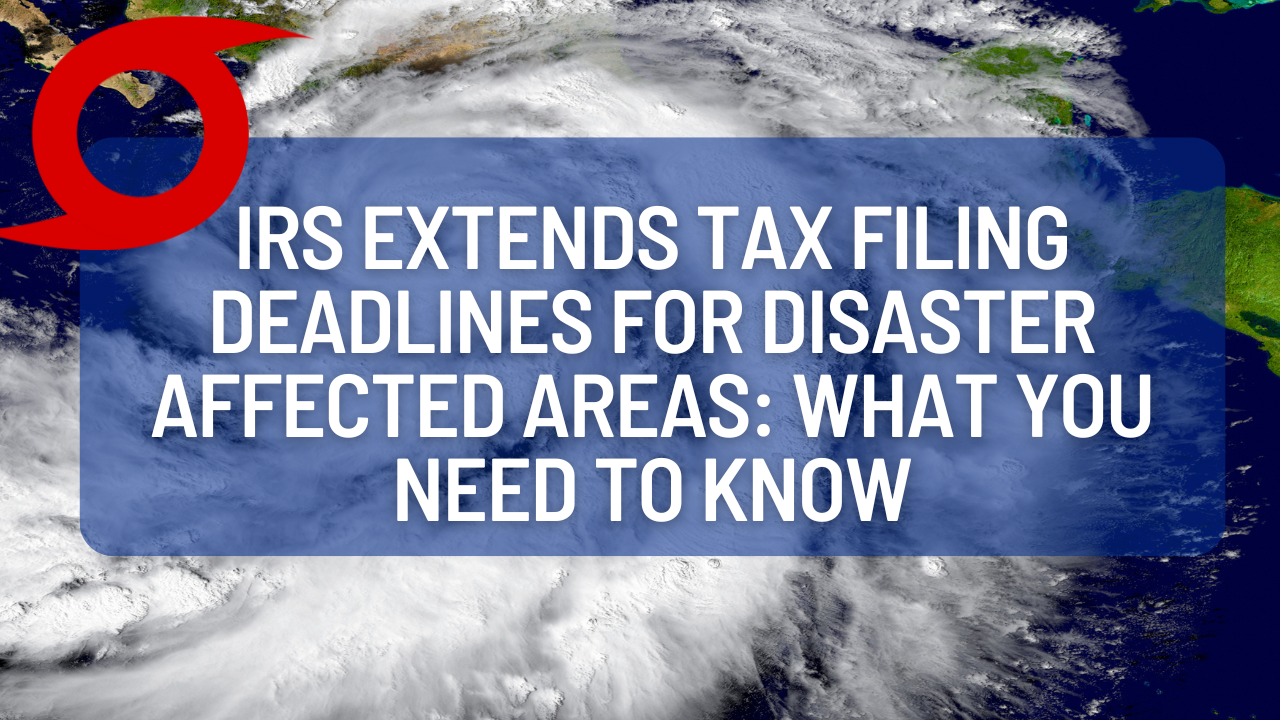In response to recent natural disasters, the IRS extends tax filing deadlines for disaster-affected areas. The IRS tax filing deadline extensions for disaster zones provide much-needed relief to affected taxpayers. As a result, individuals and businesses in these areas are given more time to complete their tax returns.
Tax Filing Deadlines and Special Extensions
While the standard deadline for filing 2023 tax year federal income tax returns is Tuesday, October 15, 2024, special considerations have been made for those in disaster-affected areas. Notably, taxpayers impacted by Hurricane Helene in all or parts of Alabama, Florida, Georgia, North Carolina, South Carolina, Tennessee, and Virginia have been granted an extension until May 1, 2025, to file their 2023 tax year returns.
Furthermore, it’s worth noting that other disaster-affected areas may also be eligible for extensions. Therefore, it’s crucial for taxpayers to check their specific situation with the IRS or a tax professional.
Electronic Filing Options
Despite these extensions, the IRS still encourages electronic filing. In fact, several options remain open for those who are ready to file. For example, if your adjusted gross income (AGI) was $79,000 or less in 2023, you can file using IRS Free File. This service enables you to prepare and submit your federal income tax return online using guided tax preparation software. Those with higher incomes, who are comfortable preparing their own returns, can use Free File Fillable Forms.
Additionally, military members and qualifying veterans have access to MilTax, a free filing service designed specifically for them. This service underscores the IRS’s commitment to providing tailored solutions for different taxpayer groups.
Online Account Access and Payment Options
In an effort to improve accessibility, the IRS has enhanced its online services. Through the IRS Individual Online Account, taxpayers can now view their tax records, check payment information, and access various tax tools. However, to use these online services, you’ll need to verify your identity through ID.me, the technology provider used by the IRS for secure access.
When it comes to paying taxes, the IRS provides several convenient electronic options. For example, Direct Pay allows you to transfer funds directly from your bank account for free. You can also pay with credit/debit cards, but there are fees associated with this service. The Electronic Federal Tax Payment System (EFTPS) is another secure way to schedule payments. For those who prefer mobile solutions, the IRS2Go mobile app offers quick access to payment options.
Important Reminder
It’s important to remember that even if you can’t pay your tax bill in full, filing your return or requesting an extension by the deadline is crucial. By doing so, you can avoid significant penalties for late filing. If you’re facing financial difficulties, don’t hesitate to explore payment plans or other options available through the IRS or contact Gibson Tax for a consultation.
As we navigate another complex tax season, staying informed and proactive is key. The IRS extending tax filing deadlines for disaster-affected areas highlights the importance of being aware of your specific circumstances. If you’re unsure about your filing requirements or need assistance, consider reaching out to a tax professional for personalized guidance.





No comment